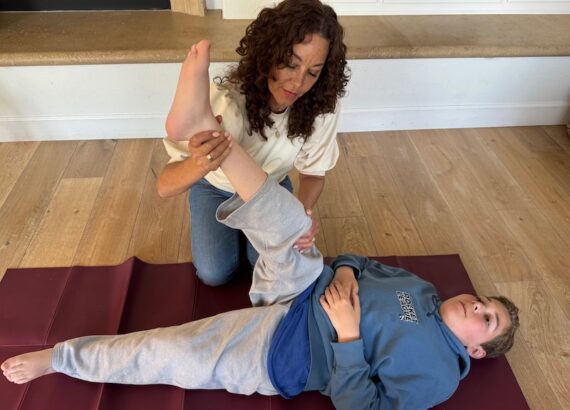Preparing for a Planned Hospital Stay

Summer has arrived, bringing a break from school and opportunities for fun for many children. However, for those of us in the rare disease community, it often means planned surgeries and procedures for our children. Facing the prospect of your child undergoing surgery or a procedure can stir up a whirlwind of emotions—concern, anxiety, and hope.
As a parent who has walked this path several times with my son Miles, I understand these feelings all too well. Each time Miles has needed surgery, I have been grateful for the advancements in modern medicine and the interventions available to help manage his condition. I hold onto the hope that these medical procedures will enhance his quality of life.
Yet, despite this gratitude and my experience with past surgeries, the anticipation of each surgery and hospital stay never fails to bring about anxiety and apprehension. It seems to amplify every worry, filling me with fear and anxiousness. To ease some of these feelings, I have found solace in thorough preparation—physically, mentally, and emotionally. Before each hospital stay, I dedicate time to ensure both Miles and our family are as ready and informed as possible.
I’d like to share what has helped me through these challenging times in the hope that it might offer support to you as well. This guide is designed to walk you through the preparations and considerations for a planned hospital stay. We’ll cover steps you can take before, during, and after the hospital stay to navigate this experience with more confidence and comfort.
Pre-Hospital Stay
1. Educate Yourself: Gather as much information as possible about the surgery. Talk to your child’s doctor to understand the procedure, its purpose, potential risks, expected outcomes, and any specific considerations related to your child’s rare disease. Knowing what to expect will help you prepare mentally and emotionally. Understanding the details can help alleviate some of the anxiety and allow you to ask informed questions to the medical team.
2. Write a List of Questions: As questions arise, jot them down. Your mind might be spinning with questions and what-ifs. Ask as much as needed to clarify doubts about the surgery, recovery process, medications, and post-operative care requirements. Knowing the answers will give you a sense of control and confidence and help you prepare logistics.
3. Speak to Other Parents: Ask your child’s doctor, the social worker at your children’s hospital, or your disease organization to connect you with other parents whose children have undergone similar procedures or surgeries. They can offer valuable insights and practical advice. For instance, when Miles had his first hip surgery, I spoke with other mothers of children with SMA who provided great ideas, such as renting a hospital bed for post-surgery at home and ensuring we had medicine for possible muscle spasms. Connecting with others who have been through it can offer invaluable emotional support and practical advice.
4. Get Organized: Keep all medical records, contact information, and important documents in one place. This includes insurance details, consent forms, and a list of medications your child currently takes. Have these ready for the day of surgery.
5. Prepare Logistics: Plan practical aspects in advance—taking time off work, reserving accommodations if the hospital is far from home, arranging childcare for siblings, and making arrangements for pets. Organize how you will transport your child home if they are not very mobile. Sorting out these details can reduce stress in the days leading up to the hospital stay.
6. Prepare for Post-Care: Determine what you will need when your child returns home after the procedure—special equipment, medical devices, medications, meals, PT/OT, etc. Arrange for these things ahead of time so you don’t have to scramble after the procedure. The recovery period will be busy enough with caring for your child.
7. Organize Support: Reach out to friends and family for emotional support and practical help. Having someone to talk to or lean on can make a significant difference. Let them know how they can help—whether it’s starting a meal train, transporting siblings, or running errands. Provide practical ways for them to support you.
8. Establish a Communication System: Set up a simple system for providing updates to your friends and family. Consider using group texts, emails, or a platform like CaringBridge to efficiently share information. This way, you can keep your loved ones informed without handling numerous individual messages or phone calls.
9. Pack Thoughtfully for Your Child and Yourself: If your child is old enough, have them help pack comforting items—favorite toys, warm socks, books, videos, music, or electronic devices. Also, pack any medications your child regularly takes. For yourself, bring comfortable clothes, warm layers (it’s always cold in hospitals), slippers, toiletries, a phone charger, and a notepad or device to track anything related to your child’s health.
10. Prepare Your Child: Hospitals can be confusing for children. Preparing them for what they may experience can reduce anxiety.
- Explain in Age-Appropriate Terms: Use simple language and child-friendly resources to explain the surgery or hospital stay. Reassure them that the medical team is there to help.
- Visit the Hospital Ahead of Time: If possible, arrange a visit to familiarize your child with the environment. Ask about pre-hospital preparations provided by the hospital’s child life program.
- Teach Relaxation Techniques: Introduce techniques like deep breathing and guided imagery to help your child manage their fears.
- Discuss Recovery: Have a conversation about what to expect after the surgery, including pain, changes in routine, and follow-up appointments.
11. Do Your Own Mental & Emotional Preparation: Prioritize self-care leading up to the hospital stay. Eat well, get enough rest, and engage in relaxing activities. Practice relaxation techniques and seek support if needed. Focus on the long-term benefits of the surgery to counteract fears and worries.
During the Hospital Stay
1. Understand Hospital Procedures: Familiarize yourself with hospital routines, such as check-in procedures, visiting hours, and where to get meals or snacks. Knowing your way around will help you feel more at ease.
2. Plan Self-Care: For two-parent families, consider taking turns staying with your child. For single-parent families, ask family members or friends for help. Ensure you get rest, as you will need it to support your child effectively.
3. Communicate with the Medical Team & Advocate: Don’t hesitate to ask questions or voice concerns. The medical team is there to support both you and your child throughout the process. Act as your child’s advocate and ensure their needs are met. Assert yourself if necessary. Your other main role is to act as your child’s advocate. You know them best, so speak up if they need something, ask questions if something doesn’t feel right, and advocate if needed to make sure your child has what they need. Hospitals can be busy places with lots of patients, and you’ll often need to assert yourself if your child’s needs are going unmet.
4. Stay Positive: Children can sense their parents’ emotions. Try to maintain a calm and positive demeanor around your child.
5. Be Present: Your presence is reassuring. Spend time with your child, read stories, play games, or simply hold their hand.
Post-Hospital Stay
1. Monitor and Comfort: Offer gentle reassurance and patience as your child recovers. They may be frustrated or agitated, so offer understanding and comfort.
2. Follow Medical Instructions: Ensure you understand any post-operative instructions and medications. Track medications and post-op instructions, and contact the medical team if needed.
3. Be Flexible: Understand that recovery may not go as planned. Be adaptable and focus on supporting your child through each step of their recovery journey.
4. Celebrate Small Victories: Acknowledge and celebrate each milestone in recovery, no matter how small, to help your child feel encouraged.
5. Block Out Time for Your Own Recuperation: Okay, this is one of my biggest tips! Surgeries, procedures, and hospital stays require additional physical, mental, and emotional capacity from Mama. It doesn’t end when the procedure is over. When the procedure is over, your child may need to spend time recovering. This means Mama is “on.” Your child may be resting, recuperating, and healing, but that doesn’t mean you will be. You may be administering medications, preparing special meals, helping with stretches and physical therapy, and doing all the things your child can’t do for themselves during their recovery. If your child isn’t sleeping well, then you’re not sleeping well. This is a high-needs time for you. Plus, seeing our children go through such heavy situations or any type of pain and suffering is hard on our hearts. It’s gut-wrenching, even when we know it’s in their best interest and for their longer-term wellness. Every time I’ve been through hospital surgeries and hospital stays with Miles, it’s not until he is completely healed that I finally see my shoulders come down out of my ears. When Miles is fully recovered and back to his normal routine, THEN I finally exhale. So, my best advice is, even if it’s a few months away, block extra time off for yourself to recuperate from the ordeal. Put something on the calendar for a few days of rest once you are through it all. This time is crucial for your own physical and emotional recovery.
Preparing for your child’s surgery, procedure, and hospital stay involves both practical planning and emotional readiness. By educating yourself, planning logistics ahead of time, and leaning into your support network, you can alleviate stress and ensure a smoother experience for both you and your child.
If you’re heading into a planned hospital stay, I wish you all the best. I know you will rise to the challenge and do what rare mamas do—advocate, comfort, console, and show unwavering love to your child. This is no easy feat, but I know you’ve got this! Sending you mountains of love!








